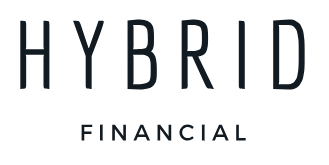Unlocking the Door to Homeownership: A Guide for Self-Employed Mortgage Seekers in the UK
Being self-employed in the UK comes with incredible perks—flexibility, control over your career, and the ability to pursue your passions. However, when it comes to securing a mortgage, self-employment can sometimes feel like a hurdle. The good news? It doesn’t have to be.
At Hybrid Financial, we’re here to help you navigate the home-buying process, ensuring that you can secure the mortgage you deserve without unnecessary stress or confusion. In this article, we’ll explore the unique challenges faced by self-employed individuals when applying for a mortgage and how you can overcome them.
The Self-Employed Mortgage Myth
There’s a common misconception that being self-employed makes it much harder to get a mortgage. In reality, it’s not about being self-employed—it’s about having the right documentation to prove your income and financial stability. Lenders want to see that you’re able to make consistent mortgage payments, just like any other borrower.
In 2023, around 4.4 million people in the UK were self-employed, representing over 13% of the workforce. As more people choose to work for themselves, mortgage lenders are becoming increasingly familiar with self-employed applicants and adapting their criteria accordingly.
4 Key Steps to Secure a Mortgage as a Self-Employed Applicant
Organize Your Financial Documents
Lenders typically want to see a minimum of two years of accounts or tax returns to assess your earnings. It’s crucial to have your financial documents in order, including:
SA302 forms or tax year overviews from HMRC for the past two or more years.
Up-to-date accounts prepared by a qualified accountant.
Business bank statements to show consistent income.
Pro Tip: Having well-organized financial records not only makes your mortgage application easier but also presents you as a reliable borrower in the eyes of lenders.
Demonstrate Stable Income
Lenders are primarily concerned with income stability. If you have a fluctuating income, which is common among self-employed individuals, they may average your income over the past two to three years to determine your affordability.
According to Which?, lenders may take an average of your earnings, or if your most recent year’s earnings are lower than previous years, they might base their decision on the lower figure. Be prepared to explain any fluctuations in your income.
Maximize Your Deposit
One way to improve your chances of securing a mortgage is by providing a larger deposit. A deposit of 15-20% can make you more attractive to lenders, as it reduces the risk from their perspective. This can also open up better mortgage rates, potentially saving you thousands over the life of your loan.
In 2022, the average house price in the UK was £295,000, and having a larger deposit not only improves your chances of approval but could also significantly lower your monthly payments.
Get Professional Help
Navigating the mortgage landscape can be tricky for self-employed individuals. That’s where Hybrid Financial comes in. We specialize in helping self-employed applicants explore their options and secure mortgages that fit their unique financial situations.
With access to a wide range of lenders, including those who cater to self-employed borrowers, we can help you find the right mortgage for your needs—without the headaches.
Common Misconceptions About Self-Employed Mortgages
Myth: Self-employed people are always seen as high-risk borrowers.
Reality: As long as you have stable income records, you’re just as eligible for a mortgage as someone with a regular salary.Myth: You need to have been self-employed for many years to get a mortgage.
Reality: While lenders typically prefer two years of accounts, some lenders are willing to work with applicants who have been self-employed for a shorter period, as long as you can prove income stability.
The Right Mortgage for Your Business—and Your Home
At Hybrid Financial, we understand that every self-employed borrower is unique, with different income streams, business structures, and long-term goals. That’s why we take the time to get to know you and your situation, ensuring we can match you with the right mortgage.
Whether you’re a freelancer, contractor, small business owner, or part of a larger enterprise, we’re here to help you unlock the door to homeownership with confidence and clarity.
Conclusion: Your Future Home Starts Here
Don’t let being self-employed stand in the way of securing the mortgage you need to achieve your homeownership dreams. With the right preparation, documentation, and support from Hybrid Financial, you can navigate the mortgage process with ease.
We’re here to make sure you have all the tools and information necessary to secure a mortgage the right way—no shortcuts, no confusion, just clear options tailored to your unique needs.
If you’re self-employed and ready to start your home-buying journey, visit our website at www.hybridfinancial.co.uk to explore your options or book a consultation with one of our expert mortgage advisors. Let us help you get the keys to your future home—on your terms.

